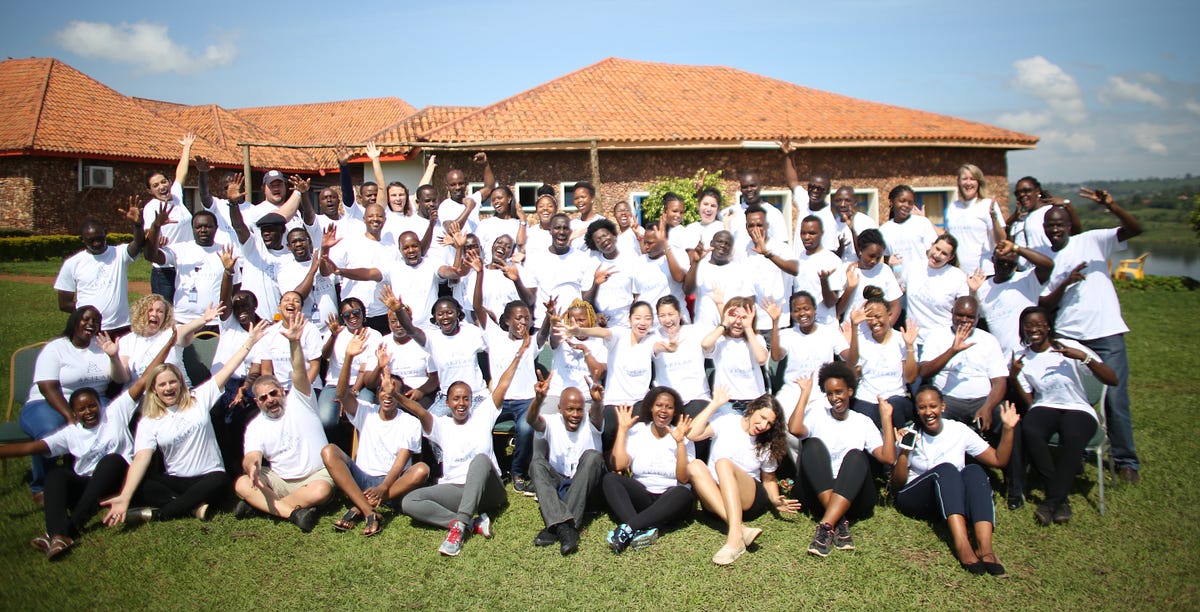Akilah Unveils New Mission and Vision

Since 2010, Akilah has built its reputation on providing exceptional educational experiences for women in sub-Saharan Africa. For nearly a decade, that was enough. But the world is changing — and quickly. Now we must do more.
It’s no secret that educating women and girls is critical to sustainable development, economic growth, environmental stewardship, and a host of other factors key to humanity’s future. It’s less well-known that women’s education plays a critical role in mitigating climate change.
Project Drawdown, a broad coalition that researches climate change solutions, ranks girls’ education as the sixth-most-effective way to reverse global warming. Educated women have more agency, marry later, and have fewer, and healthier, children. They earn higher wages and are better equipped to cope with the shocks of climate change.
The environmental benefits of educating women are clear.
But what if we could do more than increase female enrollment? What if we could create an educational experience that explicitly prepares women for careers on our changing planet?
At Akilah, we’re doing just that. Which is why we are excited to officially announce our new mission and vision.
Mission: Educating future leaders to solve the world’s most pressing challenges through a lens of opportunity and sustainability.
Vision: We are a global community of lifelong learners creating a more sustainable world. We envision a future where all individuals have the knowledge, skills, and resources to lead productive and purposeful lives on a changing planet.
Sustainability Education at Akilah
When we launched in 2010, our mission was “educating wise leaders to excel.” We’ve stayed true to that objective, but now we’re expanding our scope.
Back then, we prepared women for careers in hospitality. The tourism and hospitality industry was one of the Rwanda’s fastest growing sectors, and our graduates landed coveted positions in human resources, customer service, business development, and more. We’ve since expanded to offer diplomas in technology, business, and entrepreneurship. We’ve introduced competency-based education and supplemented our academic curriculum with growth mindset training and leadership development.
Our model proves to be working. A recent alumnae evaluation found that nearly 90% of our graduates secured employment within six months of graduation. They earn incomes that average 12 times Rwanda’s national median income. And nearly 60% of our alumnae have received a promotion in position and/or salary since graduating.
But we must evolve. The world is changing, and so should education. The guiding principle of our new model is sustainability education. We define sustainability education as the transformative learning process that equips students with the skills, knowledge, and values to build a sustainable future. Sustainable thinkers make decisions that balance vibrant economies with a healthy environment to create a future of abundance for all.
“We define sustainability education as the transformative learning process that equips students with the skills, knowledge, and values to build a sustainable future.”
Climate change is transforming the global economy and the jobs that fuel it. The impact of global warming will be felt across industries, from agriculture to tourism to business and beyond. Our graduates should be prepared to innovate and adapt to fluctuating food prices, mass migration, extreme weather events, rising seas, and other climate-related impacts. By intentionally crafting an academic experience rooted in sustainability, we are preparing our students to understand and address the effects of climate change.
We’re also doubling down on our commitment to serving women. From Project Drawdown, we now have further proof that our focus on women not only helps family, communities, and countries, but also the planet.
Our Academic Pillars
To ensure that all of our academic programs and experiences serve our mission, we’ve identified five pillars. The pillars define our academic model and guide all of our programs. They include:
21st-Century Skills: We develop lifelong learners who are prepared for the jobs of today and can adapt and succeed in the careers of tomorrow. Our interdisciplinary approach combines subject matter expertise with collaboration, communication, critical thinking, and creativity.
Personalized Learning: We recognize that every student is different. Our adaptive learning model provides individualized pathways to success to ensure each learner achieves her academic goals.
Innovation: We encourage students to enthusiastically pursue new ideas, challenge the status quo, and develop solutions for unmet needs. We leverage the latest technology and learning methods to craft an unparalleled learning experience.
Ethical Leadership: We educate and inspire ethical leaders who recognize the dignity and rights of others and the natural world. We foster values that promote gender equity, civic responsibility, and environmental stewardship.
Sustainability: We deliver a transformative learning experience that equips students with the knowledge and tools to balance vibrant economies with a healthy environment to create a future of abundance for all.
The Future
Under our new model, Akilah graduates will gain the skills necessary for professional success and the frameworks and knowledge to build climate resilience. They will lead critical conversations and push forward ideas that promote women’s empowerment, climate action, clean energy solutions, smart city innovation, and more. They will drive change in their families, communities, and countries.
To learn more about our model, please visit www.akilahinstitute.org. Or follow us on Facebook and Twitter.
